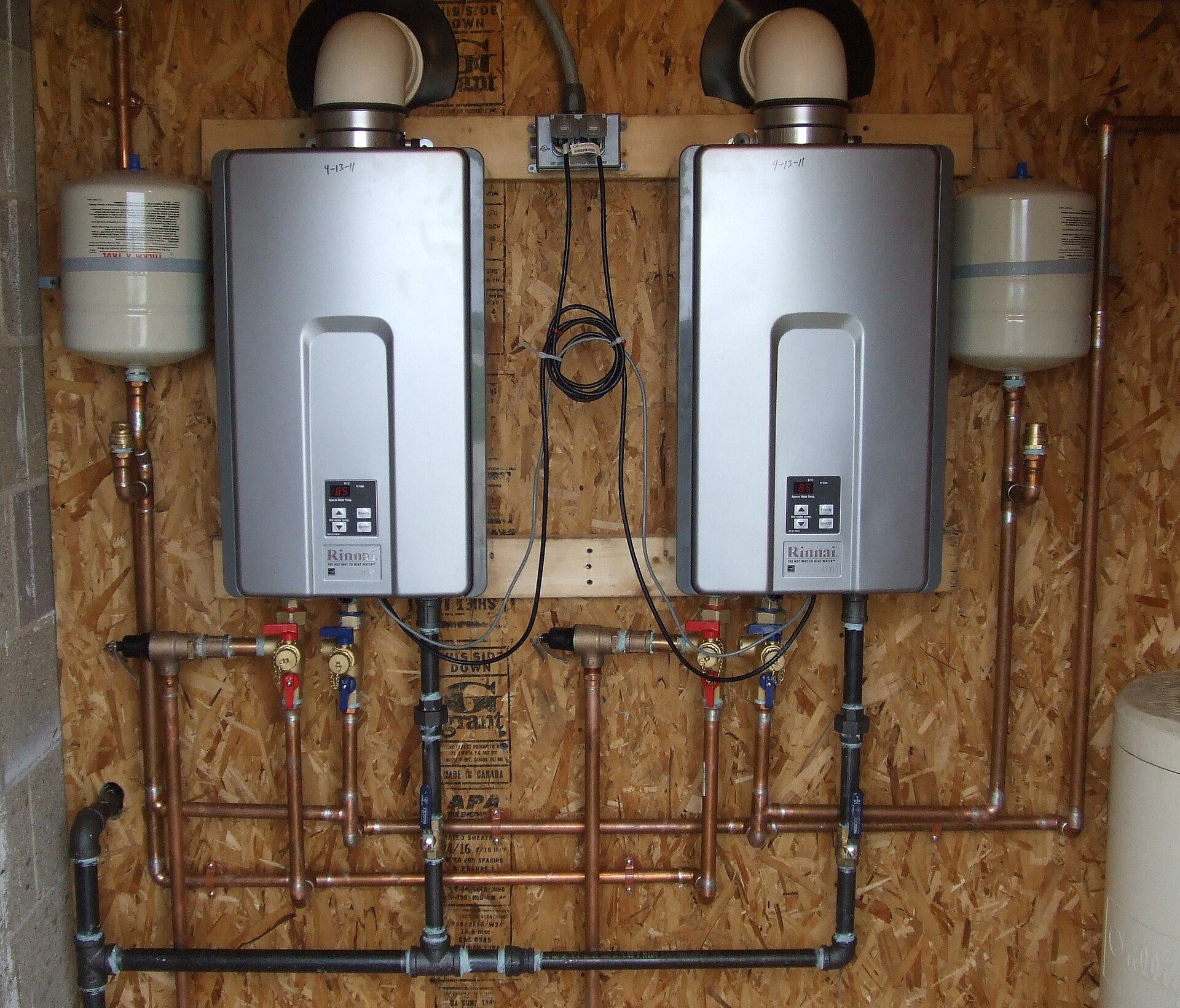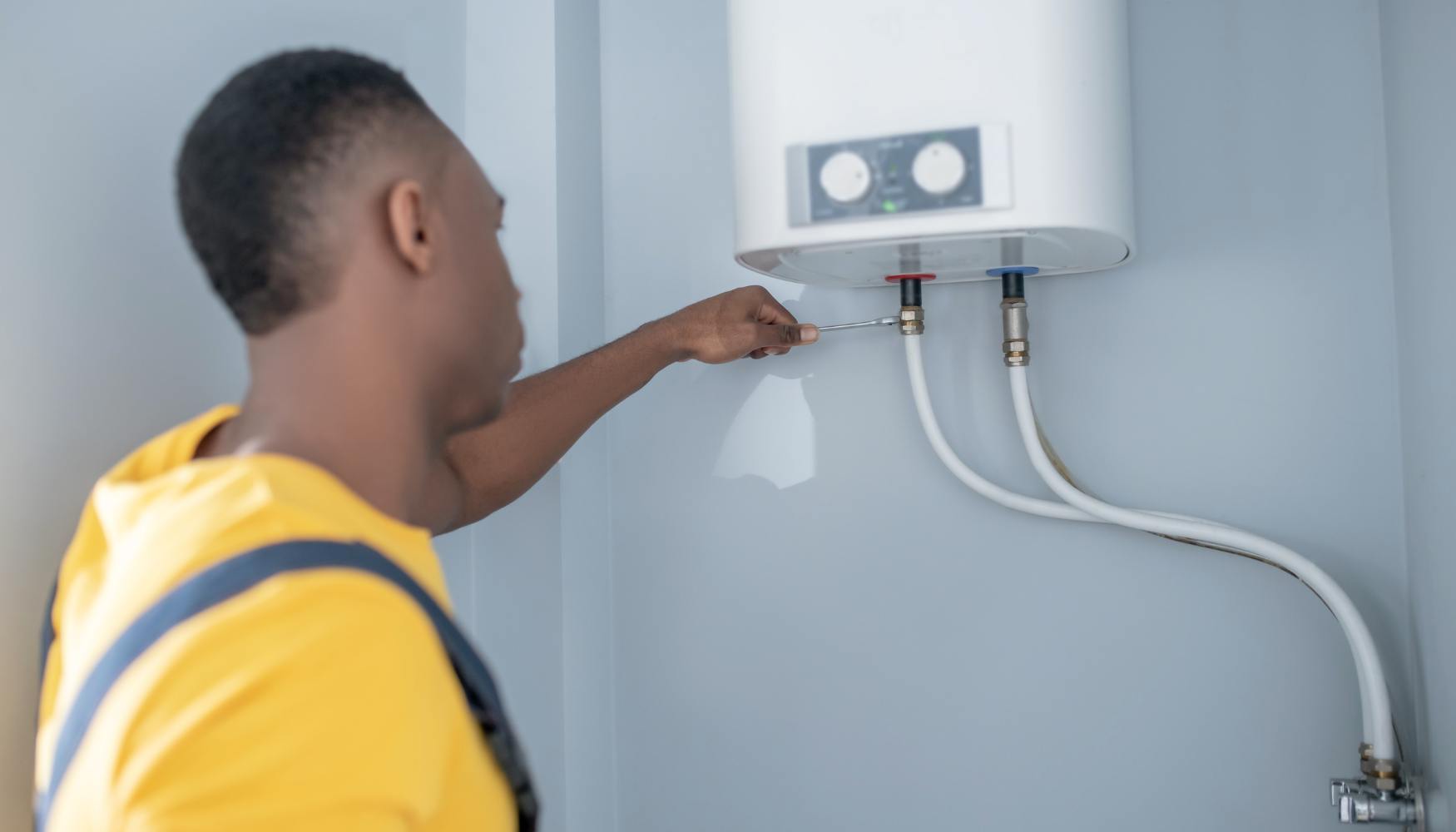Why Instant Water Heaters Present Unmatched Benefits
Why Instant Water Heaters Present Unmatched Benefits
Blog Article
Were you searching for selective information involving Pros and Cons of Tankless Water Heater?

In a world where convenience and effectiveness preponderate, it's not a surprise that homeowners are regularly on the lookout for smarter methods to manage their home's power intake and convenience. One advancement that has continuously gained popularity is the tankless water heater. But what exactly makes these systems stand apart from the conventional tank-based models most of us matured with? Allow's dive in and discover the advantages of tankless water heaters, assisting you make a decision if it's time to make the switch in your house.
Intro
Picture this: you step into the shower after a long day, anticipating a calming cascade of warm water, only to be welcomed by icy droplets due to the fact that the last person utilized it all up. Sound acquainted? Typical water heaters keep a set amount of warm water, meaning you go to the grace of that tank's supply. Tankless systems, on the other hand, warm water as needed. No more running out mid-shower, no more wrestling with routines simply to ensure hot water is available.
Understanding Tankless Hot Water Heater
What Are Tankless Hot Water Heater?
Tankless water heaters, sometimes called on-demand or instant water heaters, provide hot water only as it's needed. As opposed to saving gallons of pre-heated water, these units kick into action the minute you turn on the tap. Water travels through a warm exchanger, warming up in real-time, meaning you get an undisturbed circulation of hot water without the requirement for a huge tank resting idly by.
How Do They Vary from Standard Equipments?
Typical heaters hold a storage tank of warm water, making use of power to maintain that container at a consistent temperature. Tankless devices remove the standing supply, cutting down on squandered power and the large footprint of a big cylinder. Essentially, you're upgrading from a "stockpile" state of mind to a "made-to-order" approach.
Typical Types of Tankless Devices
Tankless water heaters normally can be found in 2 varieties: gas and electric. Gas versions have a tendency to provide greater flow rates, ideal for larger families, while electrical designs commonly offer smaller homes and are usually easier to mount. In addition, some systems are created for point-of-use (serving one component) while others can manage the entire home's warm water needs.
Trick Benefits of Tankless Hot Water Heater
Energy Efficiency and Price Cost Savings
No more warming a giant tank's worth of water and maintaining it toasty all the time. Tankless heaters lower standby power losses, which can lower utility bills. While the initial cost could be higher, the long-lasting cost savings typically warrant the financial investment.
3. Space-Saving Design
If your home is short on storage, removing the bulky container liberates useful space. Tankless units are compact and can commonly be mounted on walls, stashed in corners, or installed in limited utility closets without having all to oneself the whole area.
4. Longer Life-span
A properly maintained tankless hot water heater can outlast its tank-based cousin. Typical containers may last 10-15 years, while tankless models can maintain chugging along for two decades or more, making them a solid financial investment gradually.
1. Endless Warm Water Supply
Ever needed to schedule showers so every person gets their reasonable share of hot water? With tankless, that comes to be a thing of the past. As long as the heating system's flow ability isn't exceeded, you can take back-to-back showers without becoming a popsicle.
5. Improved Water Top Quality
Keeping water in a storage tank can in some cases lead to debris buildup or a slightly "off" preference. With tankless systems, fresh water is warmed on the spot, minimizing the possibilities of sediment build-up and potentially offering cleaner-tasting water.
Considerations Before Switching
Though the advantages are compelling, it's smart to take into consideration a couple of elements before fully devoting.
Assessing Your Home's Water Usage Patterns
If your house all at once utilizes multiple components with high warm water demand, see to it the system's flow price meets your needs. Understanding your usage patterns assists you pick the appropriate size and sort of tankless heater.
Upkeep and Care Tips
Tankless systems are fairly reduced maintenance, yet they aren't set-it-and-forget-it devices.
Regular Cleansing and Descaling
Hard water minerals can accumulate in the warm exchanger, influencing efficiency. Regular descaling (typically recommended each year) keeps the system performing at peak performance.
Yearly Specialist Evaluations
A yearly checkup from an expert ensures minor issues are caught early. They'll examine the device's efficiency, look for leakages, and aid preserve ideal efficiency.
Initial Investment Prices
Tankless heating systems commonly feature a greater in advance price tag. Between the unit itself and prospective installment adjustments, the first cost may provide you sticker label shock. But remember to watch it as a long-lasting financial investment.
Installment Requirements
Depending on your home's framework, you may need added electrical ability or gas line upgrades. Ensure you comprehend the installment needs and speak with a specialist to avoid surprises.
Making Sure Correct Ventilation
For gas versions, appropriate air flow is necessary to securely expel exhaust gases. Make certain airing vent systems are clean and properly set up to avoid any kind of possible safety risks.
Comparing Different Brands and Models
Not all tankless water heaters are created equal.
Looking Into Dependable Suppliers
Look for credible brand names with a history of generating high quality units. A trusted supplier frequently provides much better client support and longer warranties.
Installment: Do It Yourself or Expert?
While some property owners cherish tackling jobs themselves, tankless setup might not be the best time to burst out the toolbox.
Benefits and drawbacks of DIY Installation
A do it yourself install might conserve money, however it comes with dangers. Wrong installation can cause inefficiency or security worries. If you come in handy and have experience, it may be viable-- yet wage care.
Reviewing Reviews and User Feedback
User testimonials and responses from next-door neighbors or close friends that have gone tankless can offer beneficial understandings. Often, real-life experiences can be much more telling than advertising and marketing sales brochures.
When to Call a Specialist Plumbing Technician
For a lot of, calling a pro guarantees whatever's done correctly. A specialist plumbing professional comprehends local codes, sizing needs, and venting specifications, reducing the danger of problems.
Making the most of Performance
You've bought a tankless unit-- currently optimize its efficiency.
Ideal Temperature Setups
The majority of people set their systems between 120-140 F. Changing the temperature level can enhance convenience and financial savings. Experiment to locate a pleasant spot that doesn't squander energy.
Coupling With Low-Flow Fixtures
Wish to stretch your system's capabilities? Think about installing low-flow showerheads and faucets. They reduce water usage, permitting your tankless system to supply a consistent stream of warm water without straining.
Ecological Influence
Tankless water heaters align with greener living objectives.
Minimized Carbon Impact
By using much less power and only home heating water as required, tankless systems can reduce your home's carbon footprint, decreasing your environmental influence.
Preserving Natural Resources
Much less energy usage and less lost hot water translate into fewer natural resources being utilized, an ecological win-win.
That Benefits Many from Tankless Heating systems?
The charm of tankless heating units is that they can fit a selection of houses.
Huge Households vs. Solitary Owners
Huge families could enjoy the countless hot water supply, while single occupants appreciate the power savings from not warming a whole tank for just someone's early morning shower.
House Owners with Limited Room
If your home is short on square video, losing the bulky container maximizes room for various other fundamentals-- or maybe simply much more breathing space.
Eco-Conscious Consumers
Going tankless aligns with environmentally friendly worths, ensuring you're not throwing away energy or resources.
Future Patterns in Tankless Hot Water Heater
The world of home devices is ever-evolving, and tankless water heaters are no exception.
Advancements in Technology
R&D is regularly boosting heat exchangers, making systems extra efficient and resilient. Future versions might be even quieter, much more small, and much better fit for differing climates.
Smart Home Integration
Imagine changing your water heater's temperature using an app or obtaining maintenance alerts on your phone. As clever home technology advances, we'll see even more connection and comfort.
Final thought
Selecting a tankless water heater is greater than simply upgrading your home's warm water system; it's purchasing long-term convenience, energy efficiency, and a greener lifestyle. By considering your home's water usage, bearing in mind setup requirements, and devoting to routine maintenance, you can enjoy a stable stream of warm water without the baggage of a large container. As innovation advances, you can eagerly anticipate even smarter, extra efficient tankless options that not just make your life easier however likewise benefit the planet.
Why You Should Consider a Tankless Water Heater for Your Home
Energy Efficiency and Cost Savings
Tankless water heaters, also known as on-demand water heaters, heat water only when needed. This means they don't waste energy keeping a tank of water hot constantly. This efficiency translates into substantial cost savings on your monthly energy bills.
Endless Hot Water Supply
One of the significant advantages of tankless water heaters is their ability to provide a continuous supply of hot water. Traditional tank water heaters have a limited capacity and can run out of hot water, especially during peak usage times. In contrast, tankless water heaters can provide an endless stream of hot water, making them ideal for larger families or homes with high water usage.
Space-Saving Design
Tankless water heaters are compact and take up significantly less space compared to traditional tank heaters. They can be installed on walls, under cabinets, or even outside, freeing up valuable space in your home. This makes tankless water heaters a great option for smaller homes or properties with limited space for a traditional water heater.
Longer Lifespan and Lower Maintenance
Tankless water heaters typically have a longer lifespan compared to traditional tank heaters. They can last up to 20 years or more with proper maintenance. Additionally, tankless systems are designed with replaceable parts, which can extend their lifespan further and reduce long-term maintenance costs.
Environmentally Friendly
Reducing energy consumption not only saves you money but also benefits the environment. Tankless water heaters contribute to a smaller carbon footprint by using less energy to heat water. Their energy efficiency and ability to minimize standby heat loss make them an eco-friendly choice for environmentally conscious homeowners.
Customized Temperature Control
Tankless water heaters offer precise temperature control, allowing you to set the desired temperature to meet your specific needs. This level of customization ensures you always have water at the perfect temperature for your comfort and usage requirements.
https://beantownservices.com/blog/consider-tankless-water-heater-for-your-home

I found that blog posting on Six Benefits of a Tankless Hot Water Heater when browsing on the web. Sharing is good. You never know, you will be doing someone a favor. Bless you for being here. Kindly visit our blog back soon.
Information Report this page